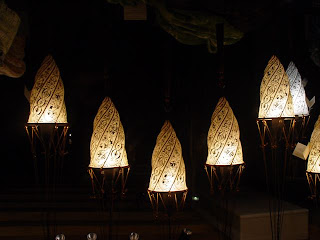On Books Just Read
Tuesday, September 2, 2008
 I read the final chapters of The Soloist this weekend. You've heard of it, I'm sure; maybe you'll see the movie version come November. This is the true story of a former Julliard musician who suffers schizophrenia and lives as a homeless man making music in the streets until he is discovered by the LA Times reporter, Steve Lopez. I loved this book on many counts; I read it slowly. But this weekend the book had me thinking again about memoir, a form I am perhaps too familiar with, having written five such books myself.
I read the final chapters of The Soloist this weekend. You've heard of it, I'm sure; maybe you'll see the movie version come November. This is the true story of a former Julliard musician who suffers schizophrenia and lives as a homeless man making music in the streets until he is discovered by the LA Times reporter, Steve Lopez. I loved this book on many counts; I read it slowly. But this weekend the book had me thinking again about memoir, a form I am perhaps too familiar with, having written five such books myself.
With memoir you have two choices. The first is to recall something that happened once and to try to make sense of it (and if you were truly living that once, you weren't recording it as it happened; hence you will have lost pieces along the way, you will have to imagine yourself back to some aspect of the truth, you will have to stretch). The second is to record something that is happening right this instant which means, necessarily, that the moment will get manipulated for the sake of the story—that the moment cannot be lived without it being somehow framed by the expectation that it will be lived again on a page. There are no two ways around this, and while I loved Mr. Lopez's book, I also began to wonder just how much of the story had to be precipitated by Mr. Lopez himself, so that the story might rise to a powerful close.
I turned, after The Soloist, to a historical novel which I'll leave unnamed, for I didn't like it nearly as much as I hoped I would, and there's no point in sending out daggers. What I want to mention here is what the story reminded me of, and that is this: History cannot rule in historical novels. It is touchstone, it is mood, it is ambiance, but no novel benefits from textbook-sounding prose, nor from plots that feel dictated to by an author's exuberant research. An author might know a great deal, say, about a certain 19th c. riot. But if that riot doesn't fit into the emotional scheme of things, we readers are going to sense (and mind) the wrong-ness of the fit.
Sunday afternoon I read (like most of the world has already read) Nancy Horan's Loving Frank. Ever since I was a girl wandering around my great uncle's studio (that would be Uncle Lloyd, who designed the Waldorf Astoria, The Pierre, the Boca Ratan, and others), I was determined to marry an architect, and I did. I worked for architects for years, I hang out with architects, I live with one, and therefore I did enjoy learning more about this famous, ill-fated affair that Frank Lloyd Wright conducts with a client's wife. As an author, though, I wondered why the story didn't feel quite as rich as I imagined it might, and then I realized this: In Loving Frank, dialogue carries the plot and discloses most of the facts. In dialogue, there's far less room to reach with language, to let it soar.
By last night, I was able to turn the lamp on over Melissa Walker's Violet in Private. Melissa herself is such a dear, and Violet is by now a familiar friend. Violet is also in college when this story, the third in a trilogy, begins, taking a class much like the one my son is now taking as she wends her way through the fashion world. Curled up, smiling, I realized that I wasn't reading Melissa's story to critique it; I was reading to enjoy it. Which says, I realize at the end of this long blog, all the right things about Violet.
Onto The Book Thief (and then to SarahBeth Carter).
















5 comments:
So glad Violet is a friend! I meant her to be.
First of all, I do not know the Violet trilogy, but I will shortly! It sounds too delightful to miss. Second, I very much appreciated your comment that language soars best when not in dialogue form. So nice to hear. I am always on guard against being expositional, then again those passages seem to be where I find myself conveying what I need/want to convey, and always in the most moving or memorable way (at least to me). :^)
Ah, Anna. Yes. Loving Frank is textbook, I think. Look at all that gets explained in the dialogue (wonderful research, important research, but explained research, nonetheless), then look at the few first-person stretches that Horan incorporates into the book. Things open, things feel more true.
Great dialogue is a gift. Melissa Walker is outstanding at capturing the way people talk and joke and carp... Her books have that YA jive, and that is why she is so loved (or one of the many reasons).
So dialogue can work. But it has to have a beat to it.
I've only read the first book, Violet on the Runway, and it is very enjoyable. We featured Melissa Walker in readergirlz last month.
You are in for a treat with The Book Thief. It was my favorite book of 2007. Absolutely, absolutely beautiful.
Ah, dear Vivian. I shall embrace Book Thief. Tonight, or tomorrow, dawn, at the very latest. And will write to you. I cannot wait. I've been eager for a long, long time.
Post a Comment